cloudy with a chance of influencer culture
baby brent, bonnie blue, and the internet attention economy
In Swallow Falls, sardines are slimy, salty, and, above all, shameful. They bankroll the town, yet nobody wants to be caught enjoying them. A decade later and here I am in my apartment kitchen, arranging a millennial pink tin of imported sardines like it’s a centerpiece. I don’t even like sardines. I bought them because they fit a mood‑board somewhere between #CoolTomatoGirl and #CoastalGranddaughter.
That, right there, is Influencer Culture in a Can™: buy the aesthetic, ignore the substance. And Cloudy with a Chance of Meatballs commented on it before TikTok was even a gleam in Vine’s eye.
I’ve come to believe that these early-2000s animated films are the real Rosetta Stones of internet culture. They weren’t trying to be prophetic, but they captured something essential about human nature that would later get amplified by algorithms.
The Sardine Stone: Behind the technicolor spaghetti storm and sardine-scented nostalgia lies a warning: when algorithms are designed to reward attention, they don’t just influence what we watch. They define what we value, what we mimic, and who we become. Cloudy with a Chance of Meatballs understood this early. It saw how the internet would turn charisma into currency, make mockery go viral, and teach us to perform instead of build.
Baby Brent: Patron Saint of Visibility Without Value
There’s plenty in Cloudy with a Chance of Meatballs to make you queasy—ratbirds, sentient gummy bears, orange Jell-O1—but nothing churns my stomach quite like the image of a grown man named “Baby Brent” in an adult diaper. He’s not just a byproduct of sardine-based celebrity; he's every influencer we've ever made famous for absolutely nothing.
Flashback: When Flint unveils his Spray-On Shoes at the beginning of the film, for one glittering second, the class oohs and aahs and believes in him. Then, Brent breaks the spell.
“How ya gonna get ‘em off, geniuuuus?”
—he jeers, and suddenly admiration curdles into mockery.
But here's what pisses me off. Brent doesn't build anything? Doesn't write or make art?? Doesn't invent?!? His one "skill" is staying visible through weaponized nostalgia and strategic shirt removal2. He’s a YouTube family-vlogger casualty wrapped in a rotisserie chicken punchline. Yet, he’s praised for it.
Baby Brent merch flourishes as bibs pop up in storefront windows on ripped, shirtless mannequins. His catchphrase basically becomes the town’s tagline.
Essentially, he’s Swallow Falls’ only influencer.
And he's got the algorithm figured out:
Loud: His "Uh-Oh!" catchphrase becomes iconic
Loopable: That pose, endlessly GIF-able
Controversial: An adult man acting like a toddler. Ew.
Thirsty: Literally always shirtless in oily sardine sheen3
The top ingredients in our algorithmic grimoire are being hot and being loud. Attention isn’t earned, but conjured through shock, lust, and weaponized wrongness. - Me at 3 am trying to be whimsical
We Made This Bed (Now We're Filming In It)
I see Brent in a lot of influencers today. Ignoring the micro influencers like Coop’s Collection and Roll for Sandwich, I see Brent in the influencers that are famous for being famous. The ones who are in scandal after scandal, yet continue to be praised by their cult comment section following.
Someone like Bonnie Blue, for example.
Bonnie Blue, now coined an “influencer” by the Tik Tok feed, is an OnlyFans porn actress who rose to stardom when she filmed a gangbag starring her and 1000 random men, accomplishing both shock value and lust in one video! What a star!
Now, she spends her days preying on freshly 18 year old boys at college campuses, recruiting barely of age girls to take their panties off on film, and bragging about it on her social media.
We call her an influencer, but who is she influencing? What is she influencing them to be? Old men to pay for her business? Babyface girls to keep it running? This isn’t influencing. I mean, it is, but, is that really what we want our society’s influencers to be promoting?
When I take a look at all of the people we have chosen to make famous, it’s a big blob of Nothing. Usually, one viral video with an undertone of controversy pushed these people to fame, and we’ve chosen to admire them for it. Not intelligence, not charity, not creativity. But, we see these people in positions of power and because they have a following, we associate them with being important → so they’re talented → which means they’re smart → and good.
With this thought process, Bonnie Blue becomes a revolutionary in women’s feminism, OnlyFans becomes an empowering career move, and the men paying for it are just community members supporting a small business.
Flints in a Baby Brent World
But the Brent Effect doesn't just benefit the Brents. It reshapes the Flints too.
Midway through the movie, Flint’s invention becomes dangerously unstable. The “Dangeometer” is blinking red. But he ignores it. He’s finally relevant. He has an audience now. He can’t stop.
So he starts acting like Brent. He starts staging his own life like content. He stops building for utility and starts building for applause. When hometown cop Earle begs him to make it rain ice cream for his son’s birthday4, Flint cautiously says yes. He knows it’s unsafe, but it’ll go viral! If Swallow Falls had TikTok, this would’ve been the “pink sauce” moment.
Even his big romantic gesture, projecting Sam’s dream weather onto the sky, is less about connection and more about performance. He becomes a content creator in a lab coat, addicted to his own engagement metrics.
Consider Hank Green, who started making thoughtful educational content about science and literature. Now he's doing TikTok dances about the periodic table and making "unhinged" tweets to stay visible. The education is still there, but it's performing as chaotic entertainment.
Or MrBeast—genuinely creative, with legitimate philanthropic goals. But to fund those goals, he's had to gamify charity, turn suffering into content, make helping people into spectacle. His thumbnails scream like Baby Brent. His titles promise shock value. The good work happens, but it's wrapped in the aesthetic of chaos.
Or take Sydney Sweeney. I used to defend Sydney Sweeney with my heart and soul. She used to confidently share mechanic videos in overalls. She used to show that one could be smart and have big tits at the same time. Now, because of the Brent Effect, she’s selling soap with her bathwater in it and a big ole hole in the middle. The internet didn't just ignore her intelligence. It actively rewarded her for abandoning it.
They aren't exceptions to the rule, they prove the rule. They show how even brilliant creators must contort themselves into spectacle to survive.
Genesis.exe
But where and when did this start?
Let’s rewind to the early internet—when platforms were just trying to get users on their apps. When social media companies weren’t curating content, they were testing what gets users to stay and engage. What kept your pupils dilated? What kept your thumb twitching?
Turns out, it was lust. It was rage. It was humiliation in 240p.
Something to pump to. Something to get pumped by. The first algorithms weren’t tastemakers. They were digital doms.
And we said thank you.
And from that rose people like Nash Grier, who built a Vine empire by looping misogyny through a filter of boyish charm. Shane Dawson dominated early YouTube by dressing racism up as “edgy comedy,” performing Black caricatures and making pedophilia jokes under the guise of shock value. Even Miranda Sings, marketed as satire, became a brand built on infantilization, performative incompetence, and a fanbase of literal children.
None of them were good inventors. None of them were thinkers. But they were loopable. Loud. Familiar.
And so the algorithm said yes.
These were the early saints of the internet attention economy. And now we’re living in its late stage—where those early experiments have become the default playbook.
The Late Stage Attention Economy
In the late stage of the internet attention economy, we’re not just scrolling—we’re actively living in the logic of the feed5. The early recommendation algorithms didn’t just change what we watched. They rewired what we value.
Here are some side effects to the late stage attention economy (i loved thinking of these pls write more)
The Hawk Tuah girl thinks she knows enough to launch crypto.
Benson Boone goes on Jimmy Fallon and casually admits he paid for the backlash to his “moonbeam ice cream” lyric. And now I’m supposed to believe it’s a hit. Manufactured hate is a marketing strategy and I will never trust that man.
Sabrina Carpenter cosplays Lolita and acts out an Eiffel Tower on stage, and somehow that’s considered “for the girls.” I like her, but no, it’s not??? You’ve just been trained to think it is. Shock and lust are our default settings, branded as empowerment only because men liked them first—and the algorithm agreed.
Every comment section looks the same. Originality doesn’t get rewarded—engagement does. So people just copy whatever reply they saw go viral last time. “Hope this helps!” is the perfect example. It’s not 1) funny, or 2) helpful. It’s just the passive-aggressive mating call of someone who doesn’t know what they’re talking about, but wants the dopamine of acting like they do. If you comment this, I automatically assume you’re stupid. Sorry.
And doooon’t even get me started on gotcha culture. The right weaponizes rage bait. And it works. I want to punch Charlie Kirk in the FUCKING FACE. The left weaponizes smugness. You’ll see someone smirk and go, “You think that’s a baby? That’s actually a dolphin fetus,” like it’s some big ass mic-drop. It’s not. It’s a recycled Tumblr post from 2014 and it wasn’t clever then either.
These are the side effects of the internet attention economy.
We reward visibility over thought. We engage with controversy over care. We treat charisma like competence, and we think a good burn is the same thing as a good idea.
Change Your Algorithm (Because You Actually Can)
We’ve been trained to believe that being seen means being valuable, but algorithms weren’t designed to reward depth. They were designed to reward dopamine. Very different things.
Since we are in an attention economy, every view is a transaction. Every follow is a vote. Every click is currency. And every time you share a clapback, follow a scandal, or watch someone spiral for “entertainment,” you’re casting your ballot for more of it.
More Baby Brents. Fewer Flints. More spectacle. Less substance.
And then you have the audacity to complain about the algorithm? Bruh. It’s us. We are the algorithm. We’ve just been trained to clap for the wrong things.
But this can be changed.
Start by refusing to engage with stuff that doesn’t serve you. Realllly look at the people you’re choosing to amplify with your attention. Is that who you want to be? Is that who you want your kids to become? If their only skill is being hot or being loud: scroll. Do not stop. Do not comment. Do not collect 200 dollars. KEEP. ON. SCROLLING.
Use the search bar. Look up creators who sit at the intersection of your weird little Venn diagram. (Mine’s music and tech. You’ll see later.) Find the builders. The thinkers. The creatives. The people actually making something. Support them6.
Better yet, be one. Find your community and be part of the shift.
People act like finding good content is impossible. It’s not. It’s just not convenient. You’ve been spoon-fed chaos since you were 13 and told to call it culture. Escaping that takes effort.
Which is exactly why most people never do it.
Modern Day Flints on the Feed
Right now, while you're reading this, there are thousands of creators doing incredible work with under 30,000 followers.
Let me introduce you to my influencers:
Julia.mp3 is a software engineer who uses computer vision to track her hand movements as she sings. Each gesture—open palm, fist, peace sign—corresponds to different MIDI pitches and tracks. When her hand is open, the note is middle C. When she makes a fist, the track layers her voice on a different note entirely. You can literally watch her terminal display different hand states as they change in real-time. This is genuine innovation in music production, blending tech and creativity in ways most people can't even imagine. She has 29,000 followers. Little low for me.
Catwizard literally invented a new instrument—a wind synthesizer called The Dragonfly. In 2025, someone is still creating entirely new ways to make music, but instead of celebrating this innovation, the comments are full of people critiquing their appearance or dismissing the instrument because “we already have clarinets”. HUH? This is the Sam Sparks treatment I was talking about—ignore the meteorologist, focus on the scrunchie. 5000 followers. Mhm.

 Tiktok failed to load.
Tiktok failed to load.Enable 3rd party cookies or use another browser
Lonnie Johnson, the inventor of the SuperSoaker7, shares insights about the creative process and how inventing can be pure fun. I think he’s a great inspiration with the way he talks about inventing as an art form. The man who created one of the most successful toys in history has only 20,000 followers btw.
While 20,000 followers might seem like a lot, it's microscopic compared to the visibility given to people who contribute NOTHING but noise8. These creators represent actual progress, real innovation, genuine community building—and they're competing for attention against people whose only skill is being loud.
If the Algorithm’s a Mirror, Maybe Stop Making Faces
Cloudy with a Chance of Meatballs ends the way most algorithm-fueled stories do: overstuffed, oversaturated, buried under the weight of its own excess.
But when the storm clears, they build it back up and make it better than ever before.9
The same could be true for us.
Stop complaining about why your Substack feed is just growth hacks and start using that search button10. Scroll slower. Follow sharper. Spend your attention like it matters—because it does!!!
The attention economy is still an economy. You don’t have to keep buying what it’s selling.
Buy weird. Buy useful. Buy quiet. Buy out of the chaos and into something better.
The feed doesn’t fix itself. It reflects you.
Start there.
(And maybe put the sardine tin back on the shelf.)
<3 brooklyn
gross
u can claim this is a skill all you want. im showing u why it’s not a good one.
and he’s voiced by Andy Samberg who is the love of my life so…
I LOVE MY SON
editing brooklyn: i shouldve made a pun on “feed” somewhere. wouldve been a good food pun. but its so late and im about to schedule the post bc im TIRED and wanna move on. i swear to god ive been at this essay for like 2 weeks now.
like me bitch. i cant afford my rent. start subscribin!!!
water gun, not me (footnote for a footnote: this is also both shock and lust. HELP it got me too!)
ive been screaming my words as i type this pls know how passionate i am
honestly dont know if this is true. i forget how the second movie goes. but for my point, we will believe it HAHA
listen ik substacks search bar is actually the worst search bar known to man. in this case, go to your favorite substacks followers. and go through each and every single one of them. i cant tell u how many times ive scrolled thru ur followers list. ya im talking to u.


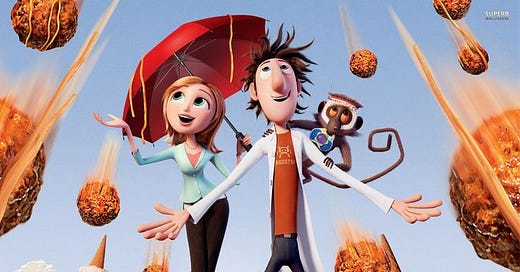


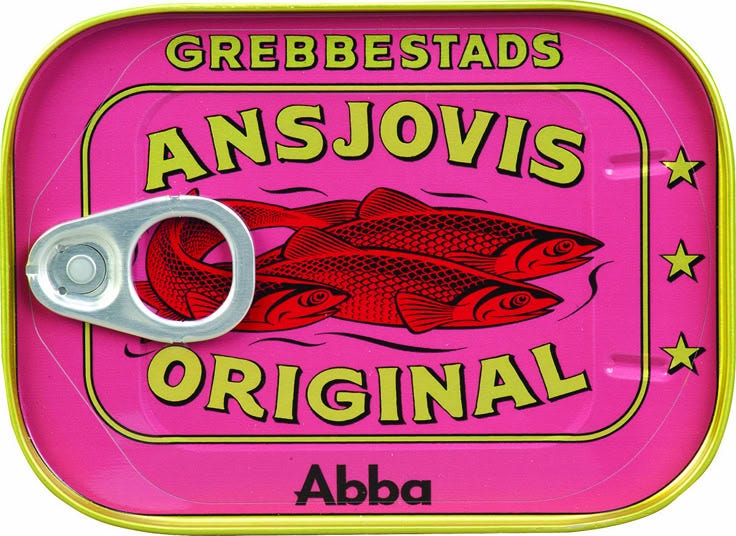

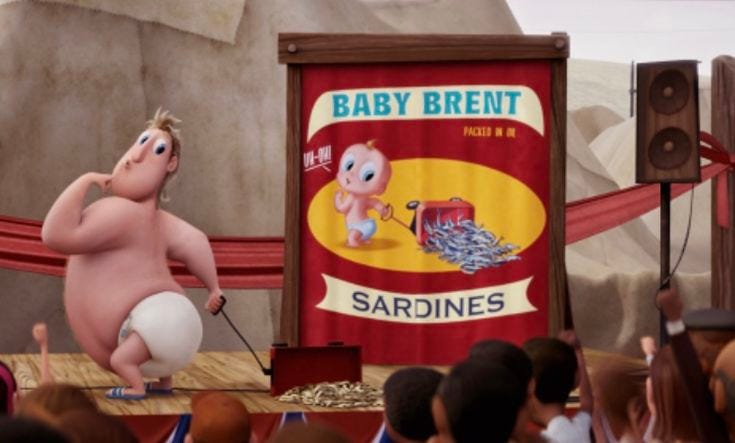

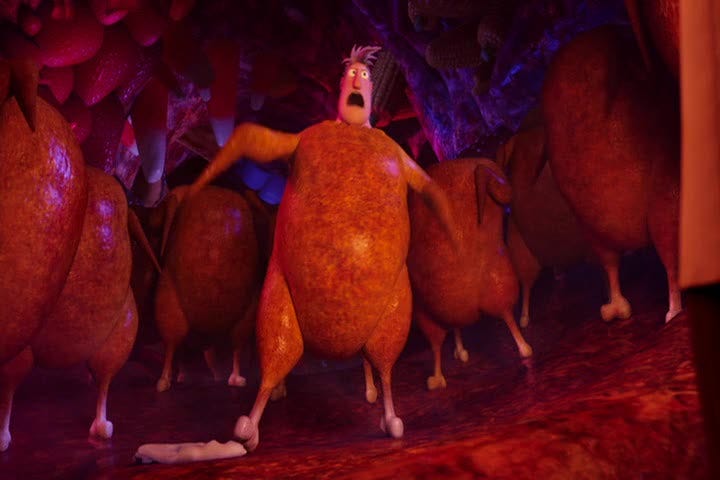
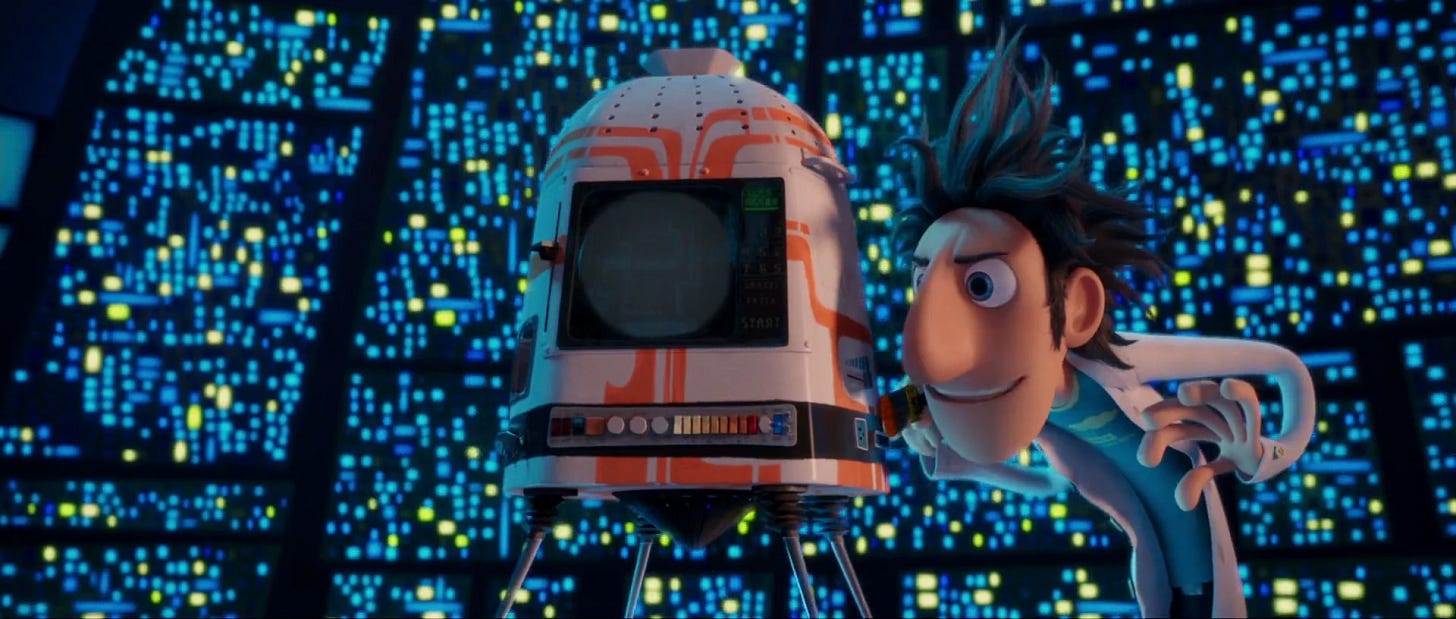
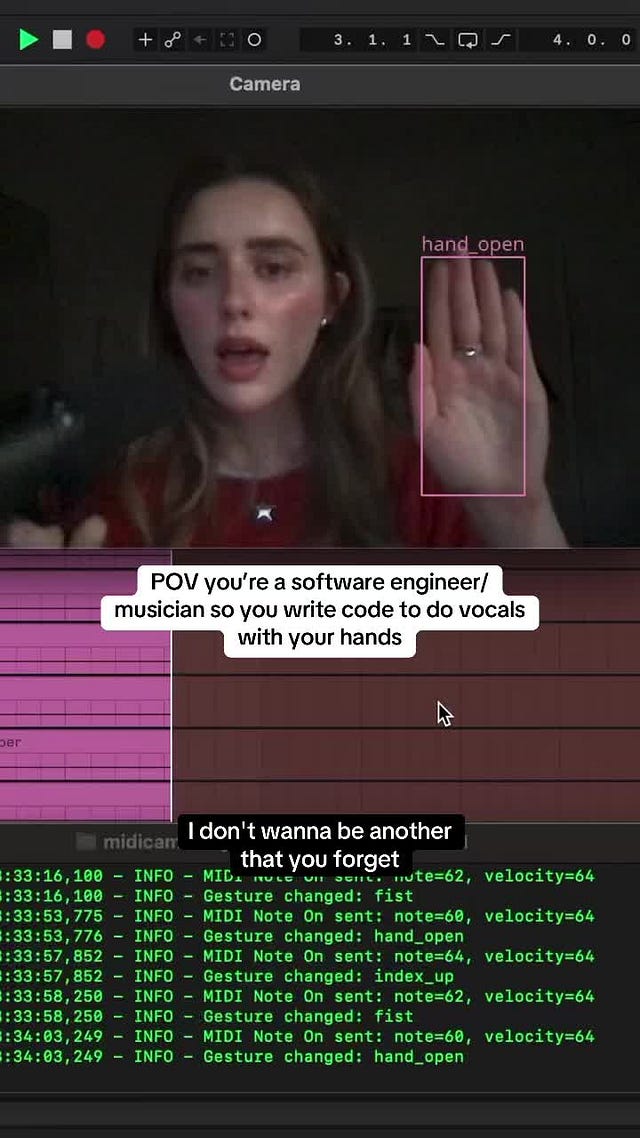
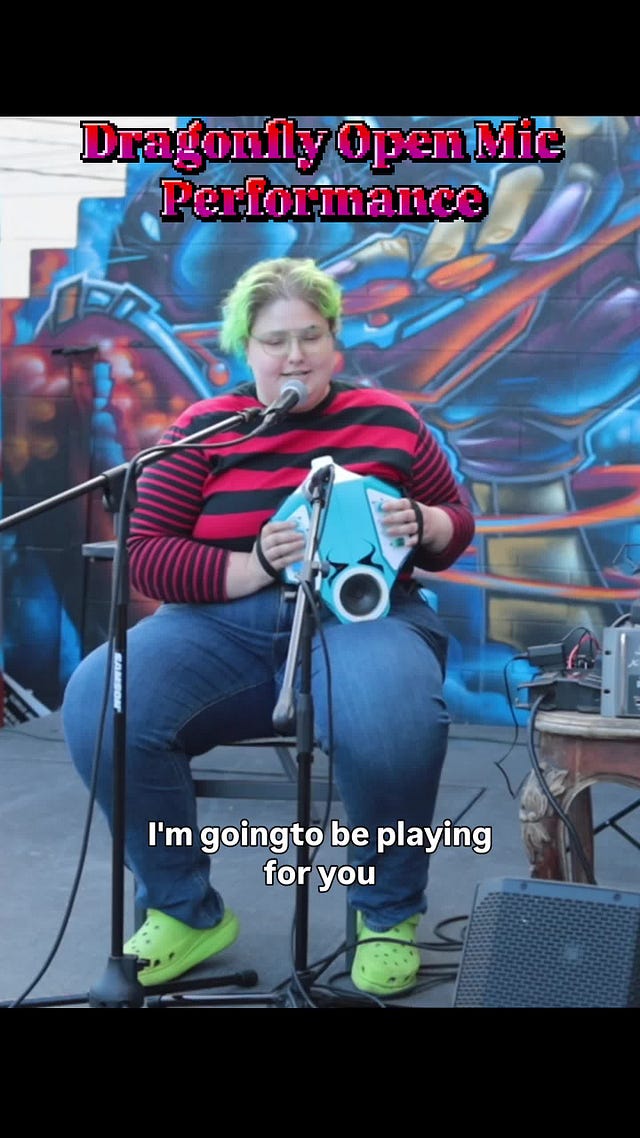
Another great piece from you, Brooklyn.
I think an interesting thought that, perhaps not directly referenced here but hoves near enough to your exploration of the influencer-influenced relationship and how its presented in 2000's animation which is worth discussing; late stage capitalism, as an economic framework, is designed to prey upon the very human craving for novelty (in this case, it's hategagement. It's a term I'm coining and I think much of why we even acknowledge irritating people and silly trends is because angrily engaging with it, to me, is just repurposed novelty) and it has most recently taken that in the form of nostalgia; the old becomes new again and late state capitalism will, without hesitation, target and uplift those who know how to farm those desires.
It plays out in big corporate ads where they've carefully co-opted popular memes or old, familiar faces via retired athletes, actors, or even proto-influencers like Paris Hilton, to further prime an audience to consume their product or service. Late stage capitalism dangles shiny, repackaged objects in front of us while a familiar hand holds it.
Brilliant, brilliant piece that should have 10x engagement and visibility than it currently does (depressingly proving your point).
Sometimes I sit here like, "What shocking things about me and my life can I use as online content?" because I understanding shock content is what the algorithm rewards which isn't bad in and of itself but when shock and lust is the ONLY piece that the algorithm rewards, it's like a race to the bottom with degeneracy. Someone like Bonnie Blue is the end result of this.
This week, I read a piece about how this has functioned within a capitalistic music industry that subsumes all genres by monetizing their initial shock value and selling that rebellion back as an aesthetic, thus rendering these genres originally based in resistance powerless. I have been meditating on it all week, and this essay complements it deliciously.
https://presterjohnsrevenge.substack.com/p/by-any-other-name-the-devil-hitler
Also want to positively add that I found this piece by using my search bar ;)